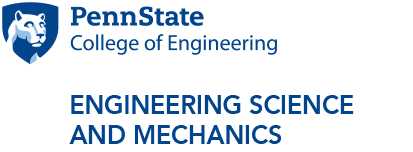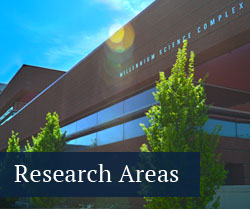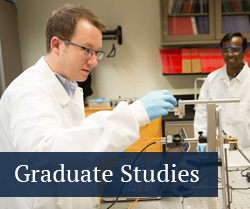Tribology/Materials Processing Lab
The interdisciplinary Tribology/Materials Processing Laboratory utilizes approximately 1800-square-feet of space and includes extensive testing capabilities for all of the commonly encountered wear-modes that include Sliding, Reciprocating, Fretting, and Abrasive wear modes using Pin-on-Disk, Pin-on-Ring, 4-Ball, and Cylinder-on-Plate (reciprocating down to fretting).
Customized capabilities are also available for testing in severe and unique environments including elevated temperature, steam, and with various lubricants. In addition, supporting state-of the-art facilities are available within the Department of Engineering Science and Mechanics, the College of Engineering, and the College of Earth and Mineral Sciences including scanning-acoustic (SAM), scanning-electron (SEM), and atomic force (AFM) microscopy, nano-indentation, materials and thin-film characterization, and contact/non-contact surface profilometry facilities.
Key Faculty:
Research Activities
Current Tribology research includes efforts directed towards the creation and evaluation of cold-spray self-lubricating coatings/alloys that are both repairable and functionally gradable using high-velocity-particle-consolidation. The objective of this very successful effort was to develop repairable self-lubricating coatings that can be used to reduce wear, friction, and damage in various components.
Unique powders for the self-lubricating coating were produced by depositing nickel (other suitable alloys can be used) on solid lubricant particles of hexagonal Boron-Nitride (hBN). The coating thickness ranged from several to tens of microns with the decreasing size showing increasing benefits as expected.
Indeed, as the resulting composite particles were reduced to around ten microns in size, the coefficient of friction was reduced by almost fifty percent, while the wear of coated aluminum substrates was decreased six-fold, all while the bond strength was tripled.
The process parameters for powder conditioning and encapsulation, as well as cold-spray deposition, have been developed but not optimized, and this is an important path for future research. Functionally graded coatings with tailored lube content and/or an engineered Cu-Ni and/or hBN-MoS2 composition must also be investigated in terms of bond strength and durability, as well as wear resistance and friction. Cold-spray deposition process parameters and post treatment have also been modeled using sophisticated dynamic finite-element simulations to optimize the elastic-plastic states required for coating adhesion and strength.
Related research into micro-porous coatings with a high degree of interconnectivity have also been developed for applications ranging from the emergency cooling of nuclear reactors (for In Vessel Retention of IVR of the molten core) to the reservoiring of liquid lubricants for reduced wear and friction.
Results found that when a binary coating system of steel and aluminum is fabricated via cold-spray and the aluminum constituent subsequently removed via etching, a relatively deep layer with a desired micro-porous structure could be created. As mentioned, this layer can also act as a reservoir for a liquid lubricant and influence the wear and friction of the surface.
Expected results of various wear and friction tests of such coatings in dense (no porosity) and micro-porous states with and without liquid lubrication should indicate interesting wear and friction behaviors and a potential protective effect of the lubrication storage.
Facilities and Labs
- Advanced Microscopy Lab
- Biodetection Lab
- Biomimetics Lab
- Bioprinting Lab
- CNEU Teaching Cleanroom
- Composite Materials Lab
- Corrosion Research Lab
- Fourier Optics Lab
- Mechanical Behavior Lab
- Nanofabrication Lab
- Non-linear Dynamics Lab
- Optoelectronics Lab
- Penn State Ultrasonics Lab
- Semiconductor Spectroscopy Lab
- Soft Matter Mechanics Lab
- Tribology/Materials Processing Lab





